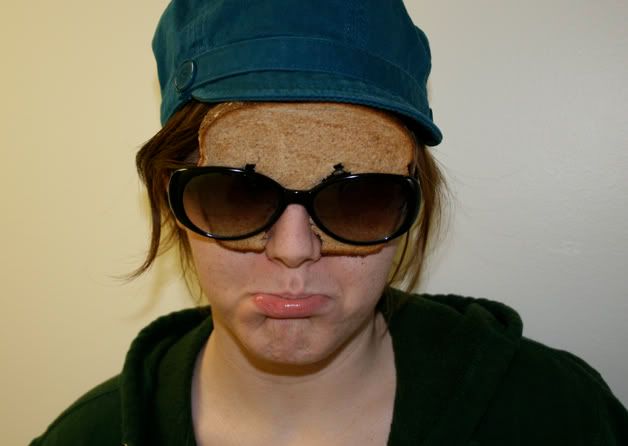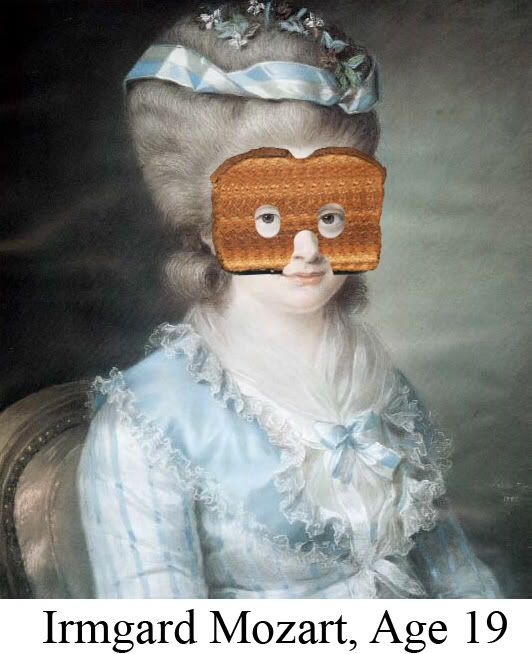-Zora Neale Hurston
 Perhaps it was rather naive of me to assume that discrimination would exist in smaller amounts on a college campus: a place of learning, a place where differences are taught to be celebrated not tolerated. However, within the first few moments of my short time as a “bread-face,” I felt the vines of discrimination creep across my flesh, nearly strangling me in minutes. As the great Martin Luther King, Jr. once said, “Discrimination is a hellhound,” and this hellhound was certainly hungry for some toast.
Perhaps it was rather naive of me to assume that discrimination would exist in smaller amounts on a college campus: a place of learning, a place where differences are taught to be celebrated not tolerated. However, within the first few moments of my short time as a “bread-face,” I felt the vines of discrimination creep across my flesh, nearly strangling me in minutes. As the great Martin Luther King, Jr. once said, “Discrimination is a hellhound,” and this hellhound was certainly hungry for some toast.In a nation that is unaware of the startling growth in cases of Wondebreditis, it is hardly surprising that a person afflicted with this horrible disease would be subject to the judging eye of the uneducated masses. This disease causes a deformation in the upper-facial area of those affected, producing what appears to be a slice of “toasted bread” around the eyes, nose, and forehead of the subject. Those few affected with Wondebreditis, or “bread-face,” were born with a strange mutation in their seventeenth chromosome, making this seemingly strange - and very rare - illness a genetic disorder. While bread-face cannot be contracted through physical contact or exchange of bodily fluids, many remain skeptical and unfairly prejudiced. In the past, physicians believed that this disorder was a result of what was referred to in the first edition of Dorland’s Medical Dictionary as “bad breeding,” implying that the offspring of someone with a very low intelligence level would produce this facial deformity. However, discoveries in recent decades have disbanded this theory, as many “intelligent” historical figures have had progeny with this disorder - most notably founding father Benjamin Franklin, whose illegitimate son Malcolm was a “bread-face,” wunderkind Wolfgang Amadeus Mozart, whose relatively unknown - and unfortunately named - daughter, Irmgard, suffered, and Winston Churchill, whose reclusive son, Artie, was seriously effected by a rather severe instance of Wondebreditis. There is still no known cause for this chromosomal mutation; however, those afflicted with this disorder can - and do - lead perfectly normal lives.

However, despite the relative ambiguity of society’s view of Wondebreditis, I expected a well informed, and open public to look past my apparent abnormality. But my expectation of people’s generosity was unfounded. Within minutes of slipping on the crisp mask of toast, I was bombarded with catcalls and disgusted glances. As I walked down the sidewalk, I was met with double-takes and laughter. Cars barely stopped at intersections, hardly allowing me a safe crossing with an eyesight deprived of peripheral vision. Our country, despite years fighting for equal rights and a nation free of prejudice, is still subject to the horrible words and actions of the naive and misinformed. I now know the prejudice and discrimination those with “bread-face” face on a daily basis, I now see the unfairness that these sufferers are laden with, and it has inspired me to fight for those with this rare genetic disorder.
 Therefore, I am taking it upon myself to call those who have been called names - “breadhead,” “toast-tete” - to step forward and join me in the fight against “bread-faced” prejudice. Join me in proving that those effected by Wondebreditis are important contributers to society. Help me educate the naive and misinformed. Crusade with me to bring an end to unfair discrimination. Start a revolution of acceptance and hand-holding. Spark an insurrection of kumbayas and love. As the great John Lennon once penned, “We all want to change the world.” If we join together, this desire to change the world can, and will, become a reality.
Therefore, I am taking it upon myself to call those who have been called names - “breadhead,” “toast-tete” - to step forward and join me in the fight against “bread-faced” prejudice. Join me in proving that those effected by Wondebreditis are important contributers to society. Help me educate the naive and misinformed. Crusade with me to bring an end to unfair discrimination. Start a revolution of acceptance and hand-holding. Spark an insurrection of kumbayas and love. As the great John Lennon once penned, “We all want to change the world.” If we join together, this desire to change the world can, and will, become a reality.
